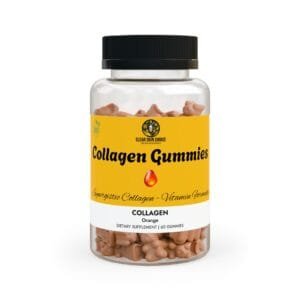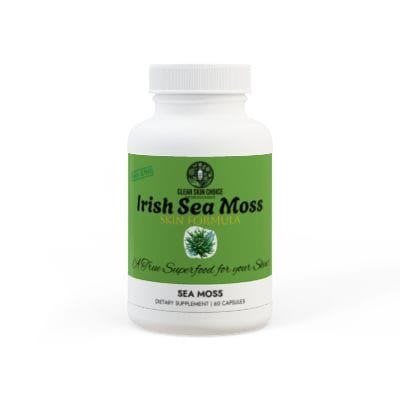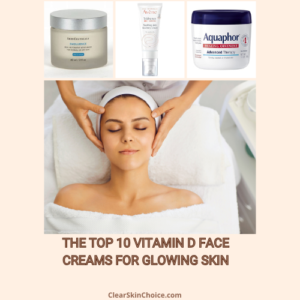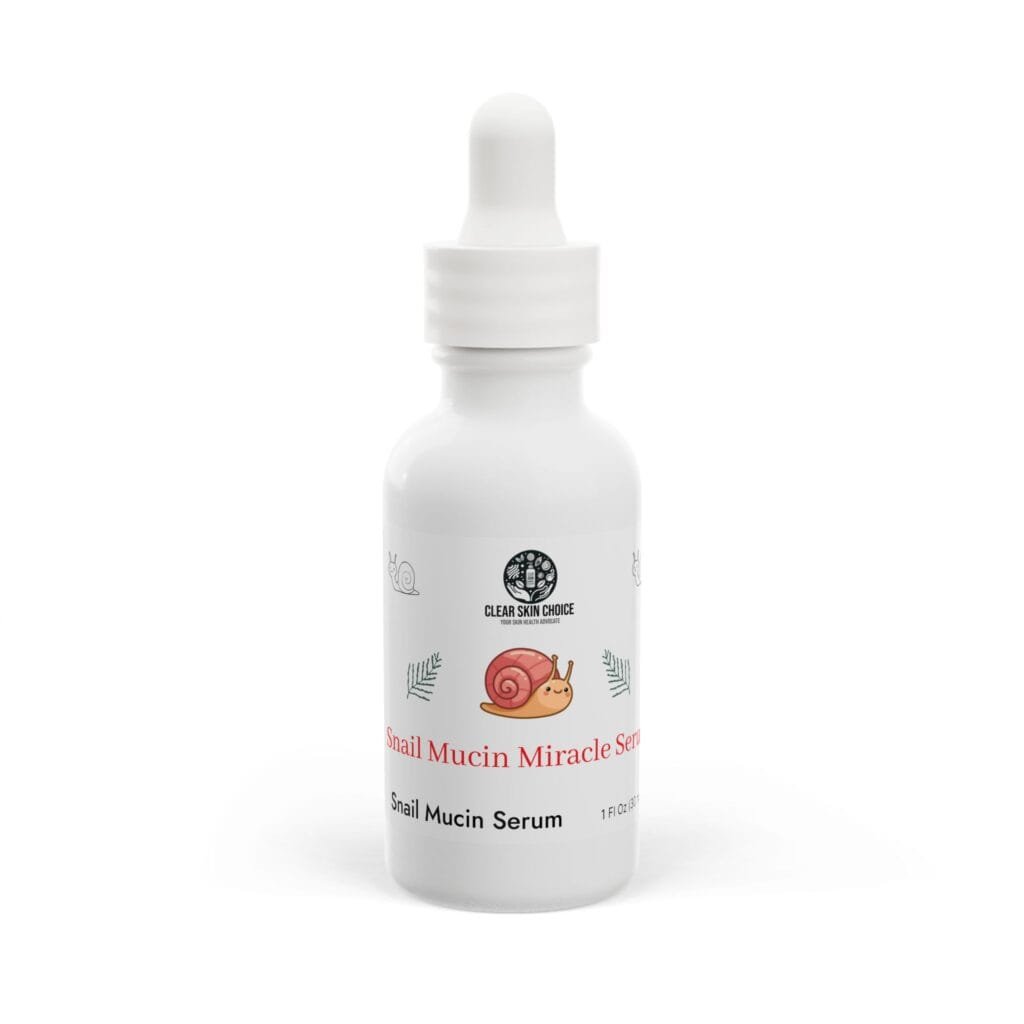Introduction
Skin health is intricately connected to various internal factors, including nutrition and appetite that may lead to “Ozempic Face”. The body’s largest organ, the skin, reflects our overall health and well-being, often exhibiting the consequences of dietary habits and nutritional deficiencies. This article delves into how changes in appetite can impact skin health, exploring various conditions such as
Case Study Overview
To understand the relationship between changes in appetite and skin health, we examine several case studies that illustrate how various conditions lead to altered dietary habits and their subsequent effects on skin appearance and health. These case studies underscore the importance of maintaining a balanced diet to support skin integrity.
Changes in Appetite
Definition and Causes
Appetite changes can manifest as increased or decreased hunger due to several factors, including stress, illness, hormonal changes, and medication side effects. Understanding these changes is crucial for addressing their consequences on overall health. For instance, psychological factors such as anxiety or depression can lead to a significant decrease in appetite, while certain conditions, like hyperthyroidism, can cause increased hunger.
Lifestyle factors such as diet, physical activity, and social influences can also cause appetite fluctuations. These changes can disrupt nutritional intake, leading to deficiencies that may adversely affect skin health. For instance, a lack of essential fatty acids and vitamins can lead to dry, flaky skin and exacerbate pre-existing conditions.
Impact on Nutrition
Changes in appetite often lead to inadequate nutrient intake, which can have profound effects on skin health. A balanced diet rich in vitamins, minerals, and antioxidants is essential for maintaining healthy skin. When appetite is compromised, the body may not receive the necessary nutrients to repair skin cells, leading to various skin issues ranging from dryness to more severe dermatological conditions.
Moreover, altered eating habits can lead to a reliance on processed foods, which are often devoid of essential nutrients. This shift can create a cycle of poor skin health, where inadequate nutrition exacerbates skin issues, which in turn can impact appetite and dietary choices.

Ozempic face is it real?
Effects of Poor Nutrition on Skin Health
Skin Health Overview
The skin requires an array of nutrients to remain healthy, including vitamins A, C, D, E, and K, as well as omega-3 fatty acids and proteins. Deficiencies in these essential nutrients can lead to various skin problems. For instance, vitamin A is crucial for skin cell production, while vitamin C plays a key role in collagen synthesis. A deficiency in these vitamins can result in dry, flaky skin and an increased risk of skin infections.
Additionally, poor nutrition can lead to inflammation, which is a significant factor in many skin conditions. Inflammatory conditions such as acne,
Vitamin Deficiencies
Vitamin deficiencies can manifest in various skin conditions. For example, a lack of vitamin E can lead to oxidative stress, resulting in premature aging of the skin. Similarly, inadequate levels of vitamin D can impair skin cell function and repair. Recognizing these deficiencies and their symptoms is vital for preventing long-term skin damage.
Moreover, ensuring an adequate intake of certain vitamins can enhance skin health significantly. For example, incorporating foods rich in omega-3 fatty acids not only helps maintain hydration but also reduces inflammation, which is beneficial for skin conditions like acne and
Deficiencies in nutrients also affects skin collagen. Supplementing with Clear Skin Choice Collagen Gummies may help!
Collagen Gummies for beautiful skin
Eczema and Its Connection to Appetite Changes
Understanding Eczema
Eczema, or atopic dermatitis, is a chronic inflammatory skin condition characterized by dry, itchy, and inflamed skin. The precise cause of
Many individuals with
Link to Nutrition and Appetite
Research has shown that certain foods can either trigger
Furthermore, nutritional deficiencies can compromise skin barrier function, making it more susceptible to allergens and irritants that can trigger
Pancreatitis and Skin Health
What is Pancreatitis?
Pancreatitis is an inflammation of the pancreas that can be acute or chronic. This condition can significantly disrupt appetite and dietary habits. Patients often experience symptoms such as abdominal pain, nausea, and vomiting, which can lead to a decreased desire to eat. This reduction in appetite can have downstream effects on nutritional status and, consequently, skin health.
Chronic pancreatitis can lead to malabsorption of nutrients, resulting in deficiencies that adversely impact skin integrity. The pancreas plays a vital role in digestion; when it is not functioning optimally, the body cannot absorb essential vitamins and minerals necessary for maintaining healthy skin.
Effects on Appetite and Nutrition
Individuals with pancreatitis may find it challenging to maintain a balanced diet due to their condition. The pain associated with eating and the body’s inability to effectively process food can lead to significant weight loss and nutritional deficiencies. This malnutrition can manifest in the skin as dryness, flakiness, and a lack of elasticity.
Moreover, the emotional and psychological toll of living with a chronic illness like pancreatitis can further compound appetite changes, leading to a vicious cycle of poor nutrition and compromised skin health.
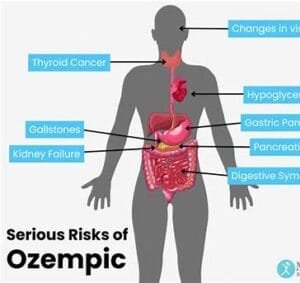
Ozempic risks are serious
Gastrointestinal and Skin-Related Side Effects
Common Gastrointestinal Issues
Gastrointestinal (GI) issues, such as irritable bowel syndrome (IBS), celiac disease, and inflammatory bowel disease (IBD), can significantly influence appetite and nutritional status. Individuals with these conditions may experience nausea, bloating, and discomfort after eating, leading to reduced food intake.
Such GI disturbances can lead to malabsorption, where the body does not effectively absorb nutrients from food. This malabsorption can have direct implications for skin health, as essential nutrients may not reach the skin to promote healing and regeneration.
Skin Reactions
Skin reactions, including rashes and irritation, are common among individuals suffering from GI issues. The connection between the gut and skin has been well-documented; an unhealthy gut microbiome can lead to systemic inflammation, which in turn can trigger skin problems.
Additionally, certain food intolerances can cause skin reactions, such as hives or
Psoriasis Flare-Ups
Understanding Psoriasis
Psoriasis is an autoimmune condition characterized by the rapid growth of skin cells, leading to thick, scaly patches. This condition is often aggravated by environmental triggers, stress, and poor nutrition. The connection between dietary habits and psoriasis is increasingly recognized, with studies indicating that certain foods can either exacerbate or alleviate symptoms.
For many individuals with psoriasis, appetite changes can result from the condition or from the medications used to treat it. These fluctuations can influence dietary choices, often leading to inflammation and subsequent flare-ups.
Hormonal Changes and Immune Response
Fluctuations in appetite can also lead to hormonal changes that affect the immune response. For instance, altered levels of cortisol, a stress hormone, can exacerbate autoimmune conditions like psoriasis. Additionally, poor nutrition can impair the immune system, making the body more susceptible to flare-ups.
Maintaining a balanced diet rich in anti-inflammatory foods, such as fruits, vegetables, and healthy fats, is crucial for managing psoriasis symptoms and promoting overall skin health.
Skin Rashes and Allergic Reactions
Types of Skin Rashes
Skin rashes can result from various factors, including allergies, irritation, and infections. Changes in appetite may lead to dietary shifts that trigger allergic reactions or sensitivities, resulting in skin rashes. For instance, an increased consumption of certain foods may provoke hives or dermatitis in sensitive individuals.
Moreover, stress and changes in appetite can also exacerbate pre-existing skin conditions, leading to new rashes or the worsening of existing ones. Identifying the underlying causes of skin rashes is essential for effective management and treatment.
Connection to Diet and Nutrition
Diet plays a pivotal role in the development and management of skin rashes. Foods high in sugar and processed ingredients can promote inflammation, while an anti-inflammatory diet can help soothe irritated skin. When appetite changes lead to poor dietary choices, the risk of developing skin rashes increases significantly.
Maintaining a diet rich in whole foods, antioxidants, and healthy fats is essential for promoting skin health and reducing the likelihood of allergic reactions and skin irritations.

Ozempic face is only one of several side effects
Ozempic Face
Overview of Ozempic
Ozempic is a medication commonly used to treat type 2 diabetes by helping to regulate blood sugar levels and promoting weight loss. However, a side effect reported by some users is the phenomenon known as Ozempic face, characterized by sagging skin and loss of facial volume. This change can be attributed to rapid weight loss and alterations in appetite.
While weight loss can have positive health implications, the aesthetic changes can significantly impact a person’s self-image and mental well-being. Understanding the connection between appetite changes due to medication and subsequent skin health is crucial for managing these effects.
Effects on Skin and Nutrition
Rapid weight loss can lead to a reduction in subcutaneous fat, resulting in a gaunt appearance. Moreover, individuals who experience appetite changes may not consume adequate nutrients, leading to deficiencies that can exacerbate skin issues. For instance, a lack of essential fatty acids can lead to dry, sagging skin.
It is essential for individuals on Ozempic to monitor their nutrition closely, ensuring they maintain a balanced diet that supports skin health during weight loss. Incorporating nutrient-dense foods can help mitigate some of the adverse effects on skin appearance.
Decreased Absorption of Vitamins
Ozempic and similar medications can change how the body absorbs nutrients. This altered absorption can contribute to deficiencies in vitamins and minerals vital for skin health. For instance, inadequate levels of vitamins A, C, and E can lead to premature aging and poor skin elasticity.
Those experiencing appetite fluctuations due to medication should consider consulting with a healthcare provider to assess their nutritional status and make dietary adjustments that promote skin health.
Conclusion
The intricate relationship between appetite changes and skin health highlights the importance of nutrition in maintaining overall well-being. Various factors, including medical conditions and medications, can significantly influence appetite and, by extension, nutrition. Poor nutritional intake can lead to skin issues ranging from dryness to severe dermatological conditions.
Addressing changes in appetite through mindful dietary choices can help mitigate the negative impacts on skin health. A balanced diet rich in essential nutrients is vital for maintaining skin integrity and function. Furthermore, individuals experiencing significant appetite changes should seek guidance from healthcare professionals to ensure their dietary needs are met.
FAQs
1. How can I improve my skin health through diet?
To enhance skin health, aim for a balanced diet rich in fruits, vegetables, whole grains, and healthy fats. Incorporate foods high in antioxidants and omega-3 fatty acids to reduce inflammation and promote skin hydration.
2. What nutrients are essential for maintaining healthy skin?
Key nutrients for skin health include vitamins A, C, D, and E, as well as omega-3 fatty acids, zinc, and protein. These nutrients support skin repair, hydration, and overall appearance.
3. How do gastrointestinal issues affect skin health?
Gastrointestinal issues can lead to nutrient malabsorption, resulting in deficiencies that negatively impact skin health. Additionally, inflammation from GI conditions may trigger skin reactions.
4. Can stress affect my appetite and skin health?
Yes, stress can lead to appetite changes, often resulting in poor nutritional choices. This can exacerbate skin conditions and promote inflammation, negatively affecting skin health.
5. What is Ozempic face, and how can it be managed?
Ozempic face refers to the facial changes resulting from rapid weight loss associated with the medication. Managing this condition involves ensuring adequate nutrient intake and possibly consulting with healthcare providers for dietary adjustments.


